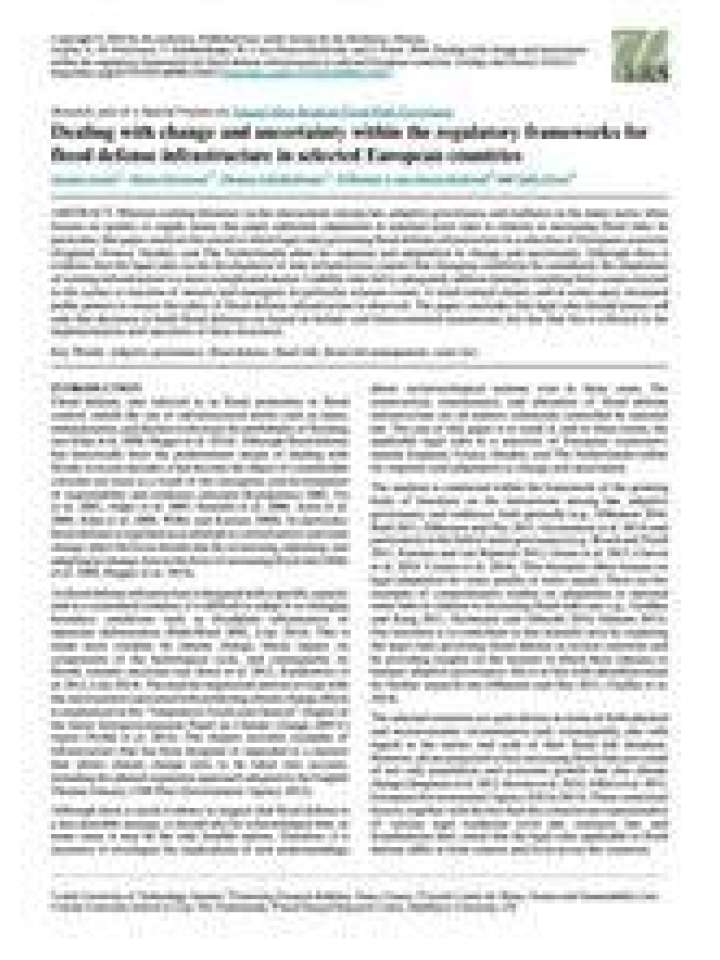Dealing with change and uncertainty within the regulatory frameworks for flood defense infrastructure in selected European countries
This paper addresses adaptation in national water laws in relation to increasing flood risks. In particular, this paper analyzes the extent to which legal rules governing flood defence infrastructure in a selection of European countries (England, France, Sweden, and The Netherlands) allow for response and adaptation to change and uncertainty. The aim of this paper is to study if, and to what extent, the applicable legal rules allow for response and adaptation to change and uncertainty. Through this exploration, the paper provides insights on the manner in which these enhance or hamper adaptive governance.
The paper provides the following major findings:
- Legal rules are most open to complexity and uncertainty when the infrastructure does not yet exist;
- Dealing with changing flood risks will require not only that the decisions to build flood defenses are based on holistic and future-oriented assessments, but also that this is reflected in the implementation and operation of these structures;
- A more formal inclusion of climate effects in the Swedish and English frameworks could, however, better support permitting authorities in requiring that uncertainties be investigated adaptive mechanisms such as time-bounded reviews are also relevant for the flood risk domain; and
- Legal frameworks could better support voluntary or cooperative ways to generate changes that would otherwise require restrictive coercive means.
The paper concludes that legal rules should ensure not only that decisions to build flood defenses are based on holistic and future-oriented assessments, but also that this is reflected in the implementation and operation of these structures.
This paper is part of a special feature on Toward More Resilient Flood Risk Governance.
Explore further

